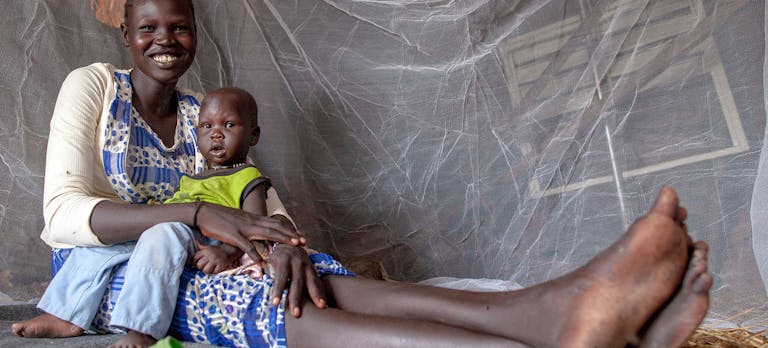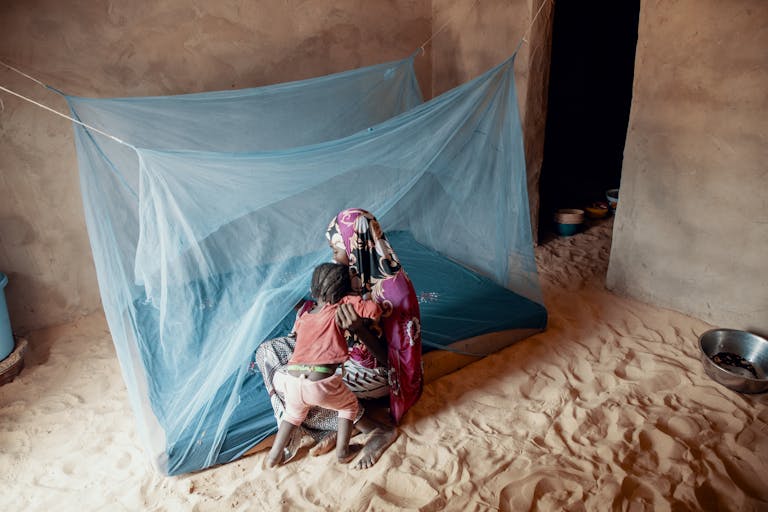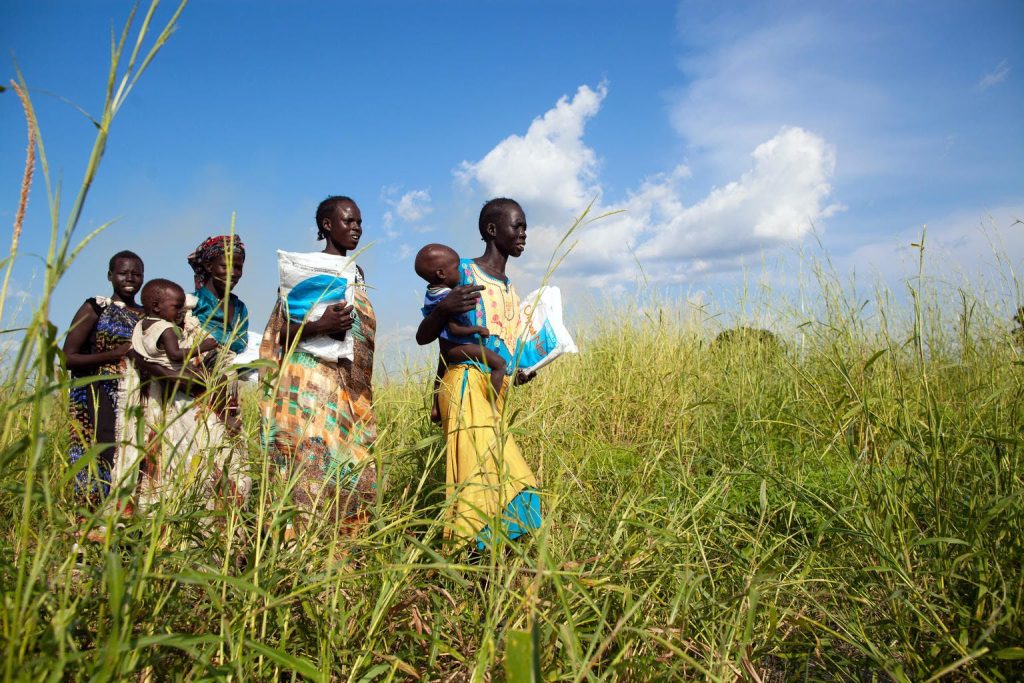worldwide well being safety is better than pandemic preparedness — it consists of safety from the epidemics the world is already dealing with, like malaria, HIV/AIDS, and tuberculosis. COVID-19 has proven us that investing in malaria prevention, detection, and remedy may even finish in enormous payoffs in pandemic preparedness. Strengthening well being functions and investing in neighborhood care may even assist administration — and probably remove — malaria whereas bolstering our capacity to detect and administration the following predominant illness outbreak.
The connection Between COVID-19 and Malaria
For a lot of the world, efforts to fight COVID-19 and malaria are inseparable. The pandemic has posed a extreme risk to the supply of malaria providers on account of current chain disruptions, fewer people in search of care on account of concern of getting COVID-19, overwhelmed well being functions, and risks to the well being and safety of entrance-line well being workers.
further complicating the difficulty, COVID-19 shares seven of 10 most typical signs with malaria — collectively with fever — making it tough for sufferers and well being workers to establish and correctly deal with these illnesses. A well being system that is already overwhelmed by malaria is unwell-equipped to detect and tackle a surge of sick sufferers when a mannequin new outbreak emerges. on account of this, malaria scorching spots are additionally blind spots for the following illness with pandemic potential, particularly in communities whose fundamental well being care is poor and whose illness surveillance is weak. As COVID-19 has proven us, an remoted outbreak can change proper into a world pandemic in a matter of weeks.
however, for nations with weak surveillance functions, current malaria functions can function the muse for greater and extra widespread outbreak detection and quick response. Malaria investments assist scale up value-efficient methods to forestall and set up fevers, as effectively as to the flexibility to diagnose, deal with, and hint the supply of an infection to interrupt transmission — all core parts that an excellent malaria program and an environment nice pandemic response have in widespread.
essentially, well being functions constructed through investments in malaria functions since 2000 have been repurposed to effectively tackle the COVID-19 pandemic. This consists of teaching tens of 1000’s of well being care workers to conduct early prognosis and remedy of individuals with fevers, constructing and digitizing information functions to enhance exact-time surveillance of infectious illnesses, bettering availability of efficient medicines and medical gear, and constructing laboratory performance in nations the place malaria goes on.

An constructed-in method to stopping Malaria and COVID-19
Recognizing that accelerated movement on malaria relies upon on sturdy well being functions and providers, nations are taking an constructed-in method to each the malaria fight and the COVID-19 response. for event, guaranteeing every fever is recognized, reported, and dealt with is a elementary constructing block for the malaria response and for early identification of pandemic threats. however, a flood of latest hospital admissions mixed with lockdowns and utterly different methods to restrict the unfold of illness restricts entry to well being amenities, which in flip will enhance the want for neighborhood-primarily based care. funding in neighborhood-primarily based take care of malaria and utterly different fevers by neighborhood well being workers permits remedy of many malaria cases on the native stage, referring solely extreme malaria cases and fevers not attributable to malaria to well being facilities.
This method relieves vital strain on overburdened well being facilities in malaria-endemic areas, the place the illness can account for as a lot as forty% of admissions to well being amenities. neighborhood well being workers deal with 250 million suspected malaria cases yearly — that’s 250 million sufferers that already strained well being functions wouldn’t should current for, releasing up assets to deal with new illness threats. The proof is apparent in how some low- and center-earnings nations are responding to the pandemic. Vietnam, Rwanda, and Uganda — nations that beforehand constructed up entrance-line malaria performance with assist from the U.S. President’s Malaria Initiative and the worldwide Fund to fight AIDS, Tuberculosis, and Malaria —have been amongst the numerous most worthwhile in responding to COVID-19.
Guarding in opposition to current and Future well being threats
Expanded funding may even be key to maximizing alternatives for the joint fight in opposition to COVID-19, malaria, and utterly different well being threats. Future pandemic preparedness and response may even be bolstered through malaria investments in a quantity of promising areas.

First, investing in further and greater-equipped neighborhood well being workers, particularly in onerous-to-attain areas, will make it simpler to detect and deal with malaria and utterly different illness-associated fevers on the neighborhood stage. vital investments in a sturdy well being workforce might even assist vaccine distribution, which is important to ending this pandemic and shutting gaps in utterly different routine immunizations. What’s extra, well being functions with worthwhile neighborhood engagement fashions — equivalent to malaria movement plans co-created with communities — can use these fashions as a basis for enhanced neighborhood involvement all through well being emergencies, activating these functions to assist with outbreak response efforts when needed.
Strengthening surveillance functions for malaria may even bolster vital infrastructure for early detection and response to rising pandemics. Investments in digitizing neighborhood well being information, cell know-how, and mapping areas weak to illness outbreaks may even assist efforts to enhance quick reporting and make contact with tracing.
subsequent, strengthening of procurement and current chain functions will go an prolonged method to defending well being functions from potential disruption by the following worldwide pandemic. COVID-19 has confirmed the significance of resilient current chains and native manufacturing of merchandise which may even be important to well being providers. speedy funding is required to make sure that malaria functions can proceed uninterrupted by securing sufficient affords of malaria commodities and addressing elevated prices on account of COVID-19 disruptions to worldwide current chains.
Lastly, strengthening and lengthening the attain of laboratory functions in nations with malaria cases — collectively with investments in constructing human assets, infrastructure, and laboratory commodities — may even be important to growing these nations’ performance for quick detection, prognosis, and remedy of fever-inflicting sickness, whether or not malaria or an rising illness risk.
Coordinated and expanded malaria investments current us with a likelihood to deal with the risk that weak well being functions pose to not solely to the populations they serve, however in addition to our whole, interconnected world. The previous twenty years of the malaria fight have created and strengthened well being infrastructure, expertise, and nation capacities which have been effectively leveraged to answer to the continued pandemic in lots of nations. We should seize this alternative to assemble on these investments to create sturdy, resilient well being functions which will discover the imaginative and prescient of a malaria-free future as effectively as to forestall the following pandemic.
attribute photograph: Ollivier Girard/ UNICEF

